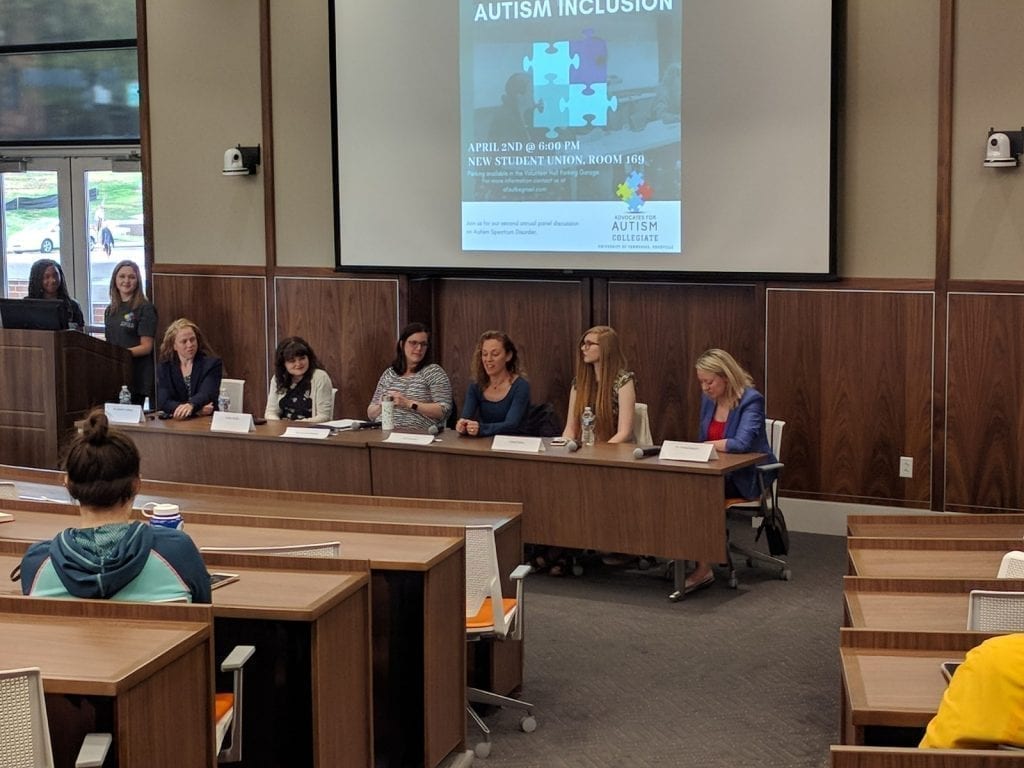Advocates for Autism presents second annual panel discussion
UT’s chapter of Advocates for Autism presents their second annual panel discussion focusing on autism inclusion.

On April 2, Advocates for Autism presented their second annual panel discussion. The panel focused specifically on autism inclusion and featured various distinguished guests throughout Knoxville.
“Diagnosis is highly variable. You’re going to see individuals with such different characteristics and symptoms. You’re not able to label everyone in every situation,” said licensed psychologist, Dr. Carolyn Blondin. “There are two main areas of deficits. The first one relates to communication… also along with autism relates to social relatedness.”
Also, individuals with autism sometimes display various actions that some may consider erratic or distracting.
“When you have a child with autism they are trying to get through the day, the minute, the hour and they need to do something,” said panelist, Kim Kredich.
Doctors diagnosed Kredich’s son with autism at age two. He is now a University of Tennessee, Knoxville student and member of the FUTURE program. Furthermore, FUTURE program coordinator Emma Burgin was one of the panelists. She has worked closely with Kredich’s son, Ben. In addition, Kredich shared a story about how she told her son about his autism diagnosis:
“We were very careful to keep the ‘A’ word out of our vocabulary, but he was doing something very odd, like taking a video of the wrinkles on some woman’s shirt. I went up to her and I whispered it but somehow it made it onto the tape what Ben was doing,” Kredich said. “He comes up to me and he’s like ‘I have autism. What does that mean?’ I really thought quickly, and I’m proud of myself for this, and said ‘Well autism means that sometimes you do things and other people don’t understand why you’re doing them.'”
Special education teacher Amber Reilly stressed that inclusion services can be different roles with different goals. Sometimes all it takes is just observation and seeing how those services need to act.
Similarly, UT sophomore Grace Sloan, who doctors diagnosed with autism at age 16, echoes Reilly’s point:
“The most important thing to me, especially during my developmental stages, was definitely social inclusion,” Sloan said. “I remember watching very closely and thinking ‘this is how I need to act’.”
Furthermore, Burgin stressed some other needs of FUTURE that would help with autism inclusion:
“We need more staff, that’s the thing,” Burgin said. “Awareness is something that we’re working on constantly… also promoting inclusions and including them [autistic students] when you see them on campus.”
Additionally, UT freshman Michael Rodriguez sat in the audience. He shared his take on autism inclusion and the panel discussion:
“Inclusion and opportunities for individuals with disabilities is just something that’s on my heart. I think tonight was well spoken, and well-educated people sat on the panel for sure,” Rodriguez said. “But it’s all about awareness, just getting people in here who don’t know about it, who might have a class with an individual with a disability. I think this is definitely the right step and would like to see it continue to grow.”
Edited by Ciera Noe and Lauren Claxton
Featured image by Jonathan Desai

